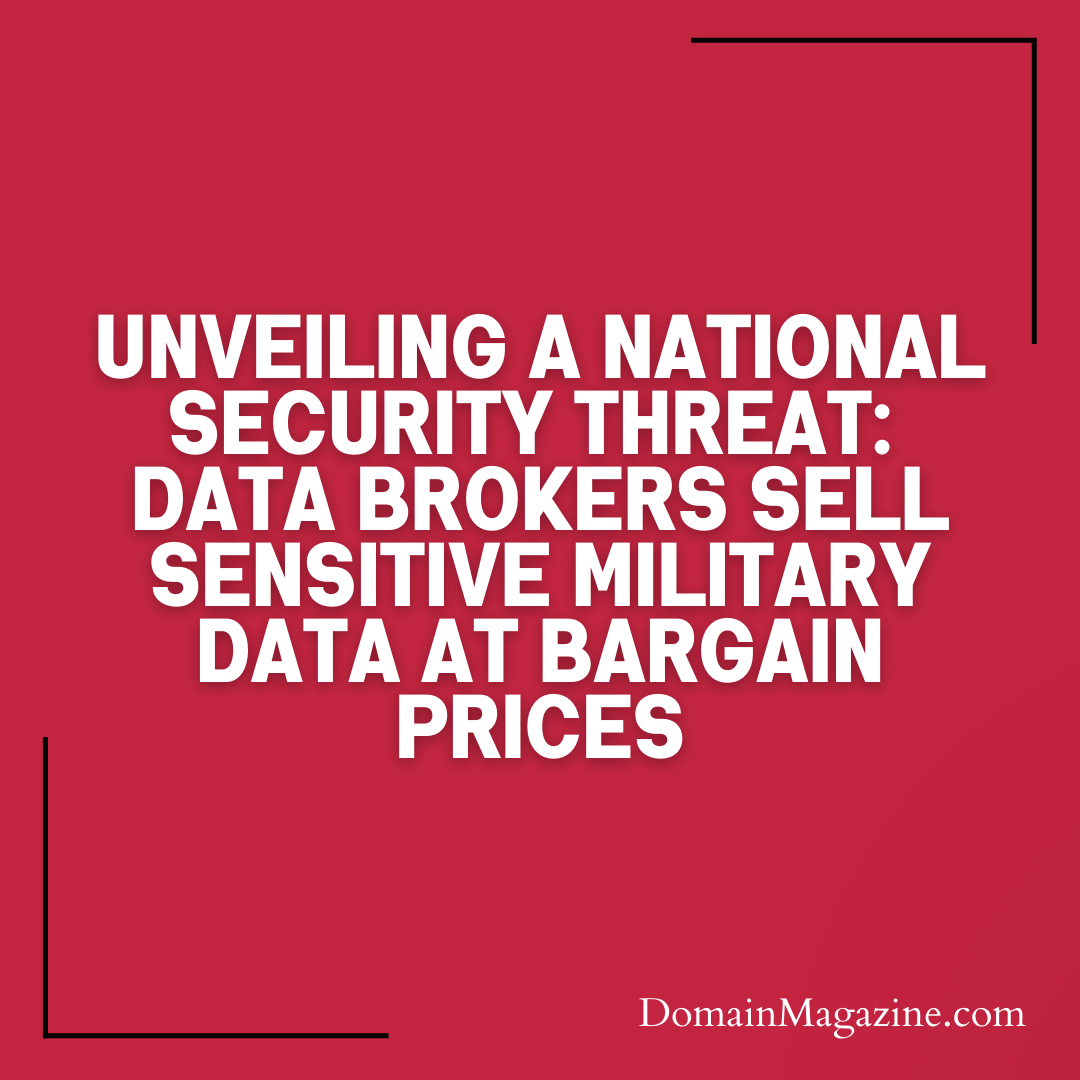A new report has exposed a troubling national security threat: unregulated data brokers are selling vast amounts of highly sensitive information about American military service members. While the data broker industry primarily focuses on collecting consumer data for marketing purposes, this largely unregulated and controversial industry has rapidly expanded, leading to privacy concerns. However, the recent findings from Duke University’s Sanford School of Public Policy emphasize that these practices go beyond privacy issues and could pose a significant risk to national security.
The Startling Discovery

The researchers at Duke University conducted an eye-opening investigation. They discovered that data brokers were selling detailed personal information about active-duty service members, veterans, and their families, including sensitive health and financial data. Shockingly, the cost of this information ranged from a mere 12 to 32 cents per record.
The National Security Angle
The researchers heightened concerns about national security by establishing a server in Singapore and purchasing data from brokers using both .org and .asia domain names. The purchased data sets included individually identified information about military personnel. Notably, while the researchers did not buy mental health or location data, it’s essential to understand that these sensitive types of information are also readily available through data brokers.
The Extent of the Problem
What’s deeply concerning is the ease with which the researchers acquired this sensitive data. Some data brokers asked for minimal verification, while others sold data without any identity confirmation. This lack of scrutiny raises the possibility of foreign adversaries exploiting this data for nefarious purposes.
The Scope of the Data
The implications of this unregulated industry are extensive. The data available for sale includes personal details like names, addresses, emails, phone numbers, family information, estimated ages of children, marital status, health conditions, financial data, and even information related to religion. In some instances, the data sets featured a mysterious “casino” column, the purpose of which remains unclear.

Additionally, many brokers offered not only location data but also web search histories, magnifying the scope of sensitive information that can be exploited. This type of data could be misused for various activities, including blackmailing or compromising active-duty military personnel.
Congressional Concerns
These findings have alarmed Congress, prompting a call to action from Senator Ron Wyden. He has been actively working on legislation to protect Americans’ data from being exploited by unfriendly foreign nations and stressed the urgency of comprehensive solutions to safeguard sensitive data. Instead of ineffective measures like app bans, the focus should be on addressing the data broker industry’s uncontrolled practices.
Conclusion
The unregulated data broker industry poses a significant national security threat, as the ease with which highly sensitive military data can be acquired is deeply troubling. As this issue gains attention, it is increasingly evident that congressional intervention is essential to curb these practices and protect national security. This situation serves as a stark reminder of the need for effective regulation in the data broker industry to ensure that sensitive data remains secure and out of the wrong hands.


Join the Discussion